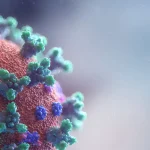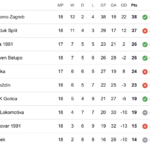
December 13, 2020 – Minister of Health Vili Beros spoke on HRT about a total lockdown in Croatia, the new measures, the current epidemiological situation, and the beginning of vaccination.
Asked if he felt responsible because, according to the European Center for Disease Prevention and Control (ECDC), Croatia is the worst in terms of the number of active COVID-19 cases per 100,000 inhabitants, he said:
“Of course, I feel responsible. However, this is a multidimensional, complex crisis, and there are no unambiguous solutions and answers. The only thing that is possible in the given circumstances is to monitor the epidemiological situation from day to day, to monitor all those elements that clearly describe it – the number of newly infected, their distribution, appearance, and based on these elements to prescribe measures,” Beros said.
He also added that two weeks is not a big enough period of time to indicate a trend. He also reminded that it took France six weeks after the national lockdown to stabilize the situation. But even after that, they have upward trends again. He believes that four to five weeks should pass after the measures are introduced, assuming that people adhere to them.
He claims that a full lockdown in Croatia is the final option and believes it will not happen.
“We have seen in the example of the neighboring countries what a hard lockdown brings. It is not a good thing. So we need to find a coexistence model in the circumstances of the new normal; we must enable certain economic activities while reducing everything we can reduce. And that is exactly what we are working on; we are trying to balance the measures. It would be easiest to introduce the toughest lockdown and close everything. But that is not realistic, especially since we do not know how long this situation will last,” Beros said.
The health minister said that at the moment, it is not very certain that a ban on inter-county travel will be introduced around December 21, although they are discussing it as well. However, this will be introduced if the epidemiological situation is such that it requires a similar way of organizing work.
“Personally, I don’t think that will happen. But, if the epidemiological situation is not adequate, we will consider similar measures. Of course, taking into account the working circumstances, i.e., exceptions that would enable work processes,” he said.
Emphasizing the importance of antigen tests, Beros said that Croatia procures significant quantities of these tests and will increase their number in hotspots where there are many newly infected.
Stating that the Croatian Institute of Public Health will conduct a national campaign to promote vaccination, Beros warned that – for vaccination to be effective – a large part of the population must be vaccinated. He pointed out that if, for example, less than 70 percent of the population is vaccinated, this will not guarantee significant prevention of the spread of the infection.
Beros also said that introducing a “COVID card” is not being considered at the moment. Still, if the virus continues to cause such severe clinical pictures after spring or summer – that is not ruled out either.
To read more about coronavirus in Croatia, follow TCN’s dedicated page.










